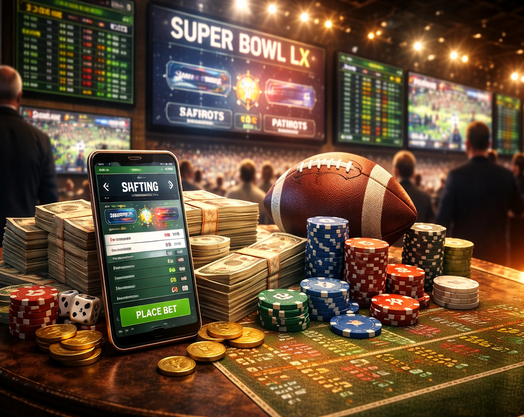Glossary Term
Even Money
Even Money
Used In: Blackjack
Definition and In Depth Look
Even money bets represent wagers where the payout is equal to the amount risked, with odds expressed as 1:1. This means for every dollar you bet, you stand to win one dollar if your bet succeeds. Even money bets are often associated with games that have seemingly equal probabilities for each outcome, such as a coin toss or betting on red or black in roulette. However, the simplicity of the payout doesn’t always reflect the true likelihood of winning. For instance, in roulette, the presence of a zero (or double zero in American roulette) slightly lowers the player’s actual chances, giving the house a built-in advantage. Thus, even though the payoff appears fair, the true odds usually favor the bookmaker or casino.
The concept of even money is also important in other areas such as investing and negotiations, where it can describe situations perceived to have a roughly equal chance of one outcome versus another. In gambling, the appeal of even money lies in its straightforward risk-reward balance, which makes it easy for bettors to understand and engage with. However, because the odds are rarely exactly 50%, a savvy bettor or investor must recognize that the “fairness” of even money is often an illusion. This understanding is crucial to managing expectations and making informed decisions when faced with even money opportunities.
Key Points
- Even money bets pay out the same amount as the stake, reflecting 1:1 odds.
- True probability of winning an even money bet is often less than 50% due to factors like the house edge.
- The term is also used outside gambling to describe roughly equal chances of outcomes.
Mechanics
However, the underlying probabilities and house edge influence the actual mechanics beneath the surface. While the payout ratio is 1:1, the chance of winning isn’t always exactly 50%. For instance, in roulette, the wheel includes one or two green slots (zero and double zero), which means the probability of hitting red or black is slightly less than half. Casinos rely on this imbalance to make a profit over time. Thus, even money bets may seem fair at first glance, but understanding these subtle mechanics helps explain why the house generally has an advantage, even when the payout appears even. This subtle difference is key to grasping why even money bets are profitable for casinos despite their seemingly balanced odds.
Advantages & Disadvantages
Advantages:
Even money bets offer clear and simple risk-to-reward ratios, making them easy to understand and appealing for beginners. Because the payout matches the amount wagered, players can quickly grasp their potential gains without complex calculations. These bets often involve straightforward choices, such as heads or tails, which can reduce decision fatigue and make the betting experience more enjoyable. Additionally, even money bets allow for consistent, manageable stakes, which can help players control their bankroll better and minimize losses over time.
Disadvantages:
The main disadvantage of even money bets is that the true probability of winning is often less than 50%, due to factors like the house edge or game rules that favor the casino. This means players are more likely to lose in the long run despite the seemingly fair payout. Because the profit margin is small on each bet, it can also lead to slow bankroll growth, requiring players to win many bets just to see significant gains. Lastly, even money bets can give a false sense of security, causing some players to underestimate the risks involved and potentially make poorer betting decisions.
Illustrated Example
Imagine you’re playing roulette and decide to place an even money bet on red. You wager $50, and if the ball lands on a red number, you win $50 plus your original $50 back, totaling $100. If the ball lands on black or green (zero), you lose your $50 stake. At first glance, this seems like a fair bet because there are 18 red and 18 black numbers on a standard roulette wheel. However, the presence of one or two green slots slightly reduces your chance of winning to less than 50%, giving the casino an edge.
Now consider a coin toss bet, where you wager $20 on heads. If the coin lands on heads, you win $20 in profit and get your original $20 back, totaling $40. If it lands on tails, you lose your $20 stake. In this case, the odds are truly 50/50, making the bet genuinely even money. The key difference between the roulette and coin toss examples lies in the true probability of winning, which affects the overall fairness and expected return of the bet.
| Bet Type | Stake | Outcome – Win | Outcome – Lose | Winning Probability |
|---|---|---|---|---|
| Roulette (Red) | $50 | $50 profit + $50 stake back | Lose $50 stake | ~47.4% |
| Coin Toss (Heads) | $20 | $20 profit + $20 stake back | Lose $20 stake | 50% |
Common Misconceptions
A common misconception about even money bets is that they always offer a perfectly fair 50/50 chance to win. Many people assume that because the payout matches the stake, the odds must be equal, which leads them to underestimate the house edge or other factors that tilt the game in favor of the bookmaker or casino. For example, in roulette, the presence of green zero pockets reduces the actual chance of winning a bet on red or black to less than half, even though the payout is still even money. This subtle but important detail is often overlooked, causing players to believe they have a better chance of winning than they actually do.
Another misconception is that even money bets are low-risk simply because the rewards seem balanced. While it’s true that the payout is straightforward and easy to calculate, the risk of loss remains significant. The small profit margin means that winning streaks are needed to make meaningful gains, and a few losses can quickly wipe out a player’s bankroll. Some bettors also mistakenly think that “even money” bets will help them break even in the long run, ignoring the mathematical advantage the house holds. This misunderstanding can lead to poor betting strategies and unrealistic expectations.
Even money may look fair, but the odds are rarely exactly even.
Conclusion
Even money bets offer an easy-to-understand way to wager, with payouts equal to the amount risked. Their straightforward nature makes them popular among beginners and casual bettors alike. However, beneath their simple appearance lies a more complex reality: the true odds often favor the house, and the risk is rarely perfectly balanced by the reward. Understanding this distinction is essential for anyone looking to approach even money bets with realistic expectations and sound strategy. Recognizing both their appeal and their limitations helps players make smarter decisions and manage their risks more effectively.
The Top Online Casinos for Blackjack Gambling
For avid blackjack enthusiasts seeking the top online casinos, a combination of factors sets certain platforms apart. These leading online casinos offer0 a diverse selection of blackjack variants, seamless gameplay experiences, generous bonuses tailored to blackjack players, and stringent security measures to ensure fair and safe gaming environments.
No results were found!


Author
Branimir Ivanov | Senior News Contributor







